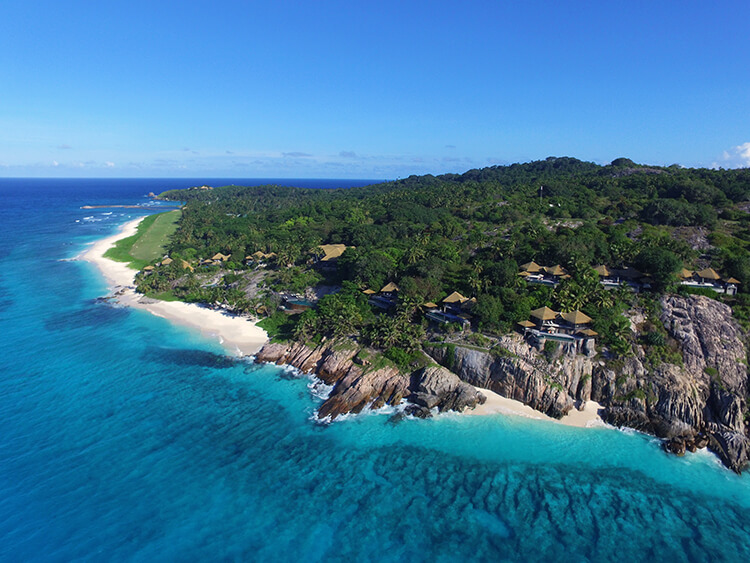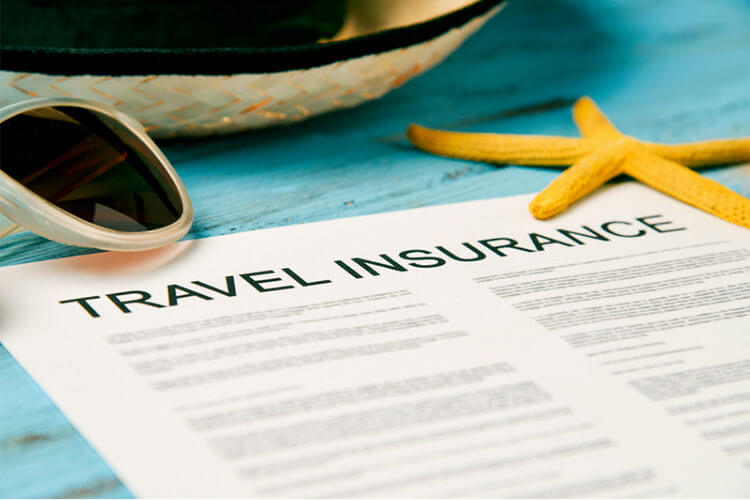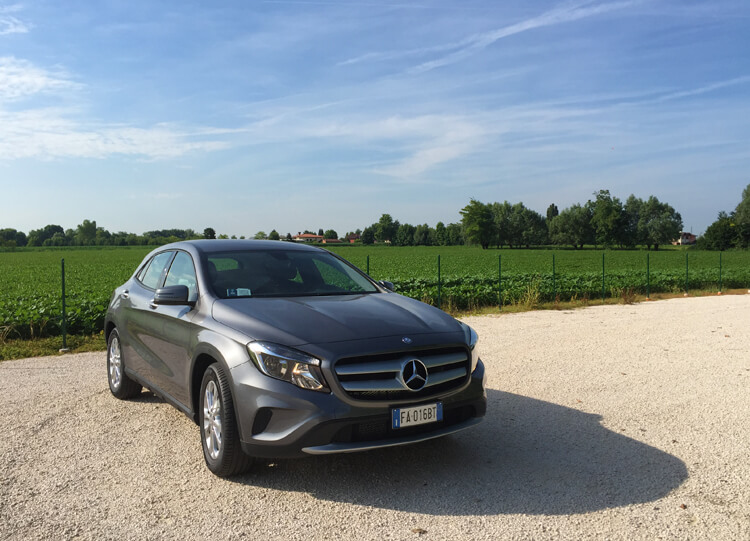Confession time. Until recently, Tim and I have never bought travel insurance. We’ve visited more than 60 countries, and in our 18 years of traveling together we’ve been lucky enough to never need it. But when an opportunity to visit Socotra, the island off of Yemen that has been called the most alien-looking place on earth, presented itself a few months ago even the threats of Somali pirates and a war raging on the Yemeni mainland couldn’t deter me. The trip never actually happened due to political unrest on the island after the recent death of Socotra’s mayor, and it ended up being a blessing in disguise as Cyclone Mekunu pummeled Socotra, Yemen and Oman a mere two days after I departed Salalah, Oman. Had the Socotra trip not been cancelled, I’d have been there riding out Cyclone Mekunu in not much more than a tent. But before all of this transpired, I needed to acquire travel insurance that would cover me for a variety of situations and provide proof of the insurance to even secure my spot on the trip. The need for travel insurance left me with the daunting task of comparing travel insurance quotes for days.
Not all travel insurance is created equal. There’s travel cancellation coverage, which covers things related to cancelling your trip before you actually depart on it. Then there’s trip interruption coverage, emergency evacuation coverage in case you suddenly need to flee the destination, and medical coverage in case you get hurt. Not every policy includes all of these types of coverage, and you really have to dig in to all the fine print because things like travel cancellation coverage may not cover every event or reason why your trip needs to be cancelled.
I’ve put together these 5 tips for shopping for travel insurance to ensure you really end up with a policy that will serve your needs.
 1. Know what coverage you already have.
1. Know what coverage you already have.
Health care policies, home owner’s policies and credit cards often cover for you things like basic medical care, lost baggage, car rentals and sometimes even the loss of personal property. Your first stop on the way to purchasing a travel insurance policy should be to call up your current providers to see exactly what is already covered.
For example, I pay an extra $10 when I book flights with my American Express card for premium baggage protection. That $10 covers both me and Tim in the event our baggage has been delayed or lost. And we’ve definitely used that premium baggage protection more than a few times.
My American Express also has car rental insurance when I book rental cars with my card. It saved me last summer when I rented a car and someone hit it and damaged the car while it was parked on the street overnight. It only took a 15-minute phone call to American Express and they submitted the claim for the $1200 in damage I was charged. A few months later after American Express had received all the necessary documentation from the car rental company, the claim was paid and all but less than $100 was credited back to my account.
However, none of our policies cover things like a decompression chamber should one of us ever experience the bends after a scuba diving accident or a helicopter to be airlifted out of remote places if one of us ever had a medical emergency in places like Nepal. So while shopping for travel insurance, we don’t need extras like baggage or car rental coverage, but do need coverage for adventure activities.

Consider evacuation insurance when traveling to remote destinations, like this private island in the Seychelles we visited
2. Buy travel insurance à la carte.
Once you understand what coverage you already have, make a list of the coverage you want and need from your travel insurance policy. These days the one-size-fits-all travel insurance plans just don’t work for most people. Know what you want and/or need and take it from there when shopping for your travel insurance. Some types of coverage you might want to consider:
- trip cancellation insurance – even if you quite literally plan on crawling on your trip come hell or high water, sometimes things happen beyond your control that make travel impossible. You don’t want to be bitter over the flights, hotels and whatever else you already booked and paid for up front for years to come when you can’t get them refunded.
- trip delay or interruption insurance – contracts of carriage don’t entitle you to the airline putting you up in a hotel for a delayed flight that leaves you stranded mid-route in every situation. For a small fee, trip delay insurance can cover meals and other expenses like hotel and taxi costs incurred when your trip is delayed for more than six hours. Trip interruption insurance covers you for certain reasons if your trip has to unexpectedly be cut short, like in the case of a serious illness or injury or a natural disaster that leaves your destination uninhabitable.
- evacuation insurance – in the event you are ill or injured, evacuation insurance allows you to be evacuated to a medical facility of your choice even if it’s halfway around the world.
- cancel for any reason – as the name implies, this type of insurance allows you to cancel for any reason. But you definitely pay a premium, sometimes as much as 50% more, for this type of insurance.
3. Don’t buy what you don’t need.
Make sure you read the fine print when you book things like hotel reservations and flights.
These days many hotels on hotel aggregators like Booking.com allow you to book but cancel your reservation free of charge up until as little as one day before your reservation. If you can cancel your hotel without penalty before you travel, you don’t need trip cancellation insurance.
When it comes to flights, you really need to read the terms and conditions. Many really good or inexpensive fares don’t allow for any changes. So weigh the cost of trip cancellation insurance against paying a bit more for a fare that gives you flexibility to change your reservation before you book that flight.

You might be surprised that destinations like Kenya can be considered high-risk to travel insurance companies
4. Where you’re traveling to matters.
As you might imagine, it was incredibly difficult to find a travel insurance policy that covered travel to Socotra since it is still part of Yemen. Standard travel insurance policies won’t typically cover travel to countries that are considered high risk, including places considered war zones, disaster relief areas and any country that your home country’s department of consular affairs office advises against traveling to.
There’s special high risk travel insurance that you can purchase for instances like this. But even if you’re not planning to travel to somewhere as remote as Socotra, you might be surprised to learn that places like Brazil and Kenya often aren’t covered by standard travel insurance policies since they have epic crime rates.
Just be sure to include all countries you plan to visit when requesting a quote and comparing travel insurance policies. You don’t want to end up with a policy that isn’t valid in a destination you’re visiting.
5. Don’t buy travel insurance from your airline or tour operator.
Never buy the travel insurance directly from the airline, tour operator or cruise ship.
We’ve all heard the horror stories of an airline suddenly going belly up and stranding passengers. A good travel insurance policy can help and cover the fees of buying a new flight, cruise or tour. But if you purchased the insurance through the company, that policy becomes obsolete in the scenario that the company closes up shop.
Even if it’s not a going under situation, the travel insurance offered through cruise ships and tour operators almost always only covers you while on the cruise or the tour. If problems occur while traveling to or from your cruise embarkation port or tour departure point, these policies typically don’t cover you.



Aaron White says
I liked your tip of making a list of what coverage you need when trying to find travel insurance. My wife and I are wanting to go on vacation with our family and we were wondering how we could find travel insurance for us. I’ll be sure to tell her that we should make a list of what kind of coverage we need before we go on vacation.